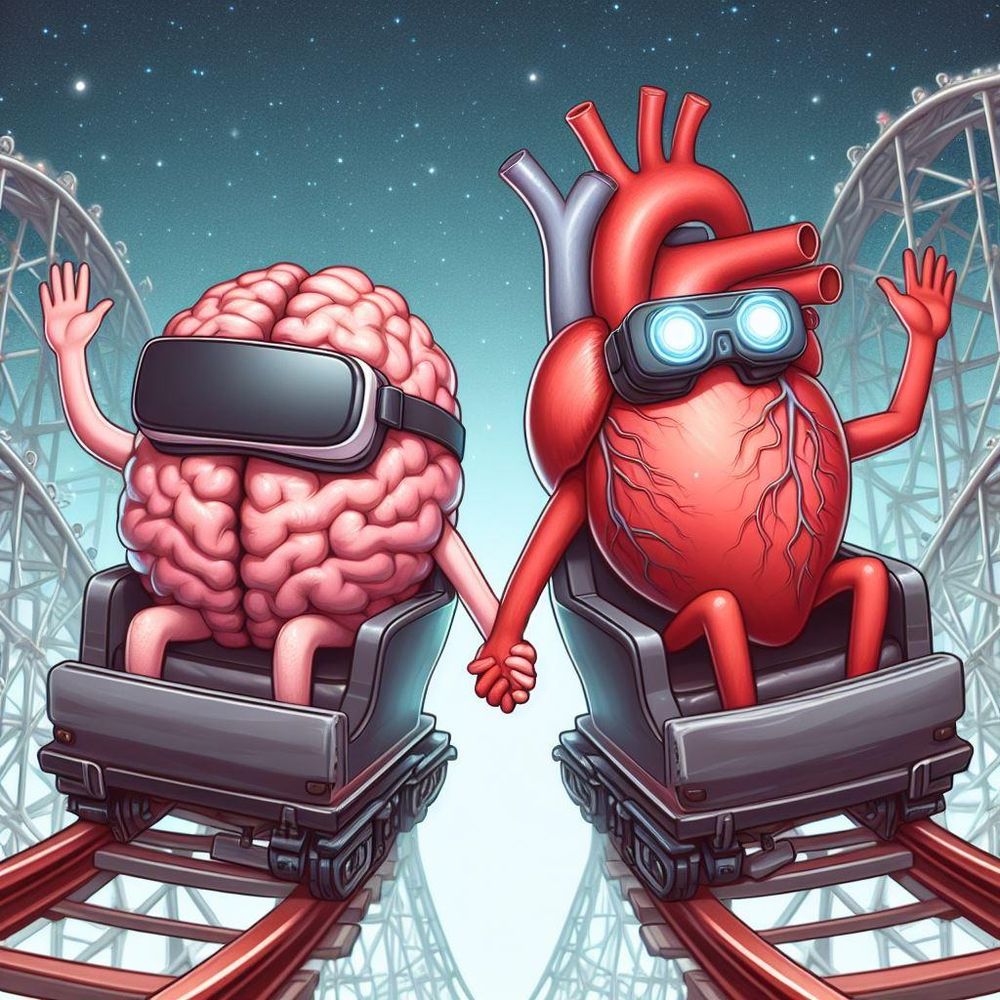
@fra-malandrone.bsky.social
@lucyroe.bsky.social
A. Ciston
@thefirstfloor.bsky.social
A. Villringer
S. Carletto
@michaelgaebler.com
#neuroskyence #vr #emotion #affect #selfreports
@fra-malandrone.bsky.social
@lucyroe.bsky.social
A. Ciston
@thefirstfloor.bsky.social
A. Villringer
S. Carletto
@michaelgaebler.com
#neuroskyence #vr #emotion #affect #selfreports
We developed, empirically evaluated and openly share **AffectTracker**, a new tool to collect continuous ratings of two-dimensional (valence and arousal) affective experience **during** dynamic emotional stimulation (e.g., 360° videos) in immersive VR! 🥽🧠🟦
We developed, empirically evaluated and openly share **AffectTracker**, a new tool to collect continuous ratings of two-dimensional (valence and arousal) affective experience **during** dynamic emotional stimulation (e.g., 360° videos) in immersive VR! 🥽🧠🟦




tinyurl.com/yxn3vk8e
with @flxklotz.bsky.social @smnhfmnn.bsky.social @langestroop.bsky.social V.Nikulin A.Villringer @mgblr.bsky.social 🧠🟦
1/7 ⬇️

tinyurl.com/yxn3vk8e
with @flxklotz.bsky.social @smnhfmnn.bsky.social @langestroop.bsky.social V.Nikulin A.Villringer @mgblr.bsky.social 🧠🟦
1/7 ⬇️

